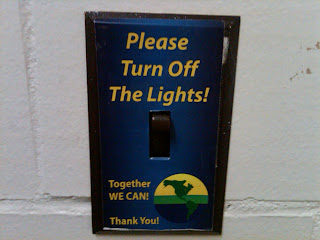Recycling is now one of the popular solutions to sustaining our resources. Recycling stimulates the growth of new, green technologies, reduces the size of landfills, reduces harmful toxic gasses such as carbon dioxide, methane, and nitrous oxide, and makes it possible for energy to be saved from making new materials. According to dictionary.com, recycling is defined as “to treat or process (used or waste materials) so as to make suitable for reuse,” and “to reclaim (packaging or products with a limited useful life) for further use.” Green technologies are defined by dictionary.com as “any technology that is environmentally friendlier than a comparable existing technology.” For example, solar and wind operated power is greener than burning fossil fuels.
An alarming statistic I came across is “if every American household recycled just one out of every ten HDPE bottles they used, we’d keep 200 million pounds of the plastic out of landfills every year,” (http://www.oberlin.edu/recycle/facts.html). For more statistics about all the things that are recycled and what if scenarios, visit http://www.oberlin.edu/recycle/facts.html.
According to the Office of Sustainability at WVU
“During a typical semester [at WVU], campus buildings average 10 tons of paper and 150 pounds of plastic per week (summer numbers are slightly lower). Since the program began, WVU has recycled more than a ton of plastic bottles. This is very impressive considering that it takes 17 empty bottles to make a pound which calculates 34,000 bottles to a single ton.” To view recycling achievements at WVU for 2007, 2008, and 2009, click on the year you want to view.
The recyclables at WVU include paper, #1 plastic, cardboard, and aluminum.
Interested in some myths and facts about recycling? Click here to learn more: http://wecan.wvu.edu/sustainability/recycling/mythsfacts
Recycling around the world varies from country to country. For example, “Austria heads the EU [European Commission]in its recycling efforts with approximately 60% of its waste being recycled,” while “Greece falls short with only 10% of its waste being recycled and the remaining 90% going to the landfills,”
(http://www.environment-green.com/More_Recycling_Facts_and_Statistics.html).




Thanks for providing this useful post, Allison. I'm wondering what you might make of this argument, written just up the road in Pittsburgh, that highlights some of the environmental consequences that follow from recycling itself. This author ultimately argues that what's most needed in less consumption of resources and products--which in turn would mean less recycling, too. http://www.pittsburghcitypaper.ws/gyrobase/Content?oid=oid%3A45553
ReplyDeleteBy the way, I like the visuals in your blog, too--it provides a nice sense of how and where your readers are likely to see recycling and energy conservations efforts taking place on campus. What are other strategies that the WVU Office of Sustainability (or any other office or group) are using to promote recycling and energy conservation?
ReplyDelete